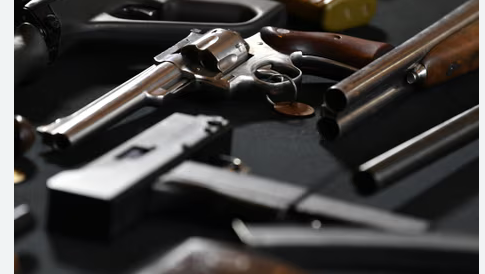The national firearms act (NFA) of 1934 holds as among the most crucial bits of laws inside the field of firearm legislation in the United States. Introduced in reaction to gangland physical violence throughout the Prohibition period, the NFA was made to control some kinds of firearms and components regarded particularly hazardous or inappropriate for civilian use. Here is what you need to know about the NFA:
1. Origins and Purpose:
The NFA was passed in response to the soaring assault related to organized criminal activity during the 1920s and earlier 1930s, particularly using firearms such as equipment pistols, simple-barreled rifles and shotguns, and silencers by bad guys. Its primary goal would be to manage and tax the transfer and creation of these particular kinds of firearms and add-ons. By imposing rigid restrictions and significant income taxes, legislators hoped to suppress their availability and prevent illegal action.
2. Controlled Firearms and Units:
The NFA imposes polices on many kinds of firearms and gadgets, which include:
Unit firearms: Fully auto firearms capable of firing a number of rounds with a individual take of the trigger.
Brief-barreled rifles (SBRs): Rifles with barrels smaller than 16 ins or all round lengths smaller than 26 in ..
Brief-barreled shotguns (SBSs): Shotguns with barrels reduced than 18 ” or all round measures shorter than 26 “.
Suppressors (silencers): Gadgets linked to firearms to minimize the noise of gunfire.
Destructive units: Specific explosives, bombs, grenades, and large-quality firearms not suitable for sporting purposes.
3. Compliance and Rules:
To have or exchange an NFA-governed weapon or product, people and organizations have to comply with rigorous restrictions. Including spending a income tax stamp for every product, experiencing an extensive track record verify, and getting acceptance from your Bureau of Alcoholic drinks, Cigarettes, Firearms and Explosives (ATF). Additionally, any shift of those products needs to be reported and noted towards the ATF.
4. Effect and Conflict:
The NFA has had an enduring affect on firearm legislation in the states. While proponents argue that it may help stop the proliferation of risky tools and lowers firearm-relevant crime, experts often cite it an infringement on Second Amendment privileges and reason that it disproportionately impacts rules-abiding pistol owners. Over the years, there has been arguments and legal challenges surrounding the constitutionality and performance in the NFA.
In conclusion, the National Firearms Act of 1934 continues to be a basis of handgun control in the states. By imposing stringent restrictions and taxation on certain kinds of firearms and extras, it aims to equilibrium public security issues with Secondly Amendment legal rights. Comprehending its provisions and implications is essential for everyone involved in the possession, move, or creation of NFA-licensed goods.
